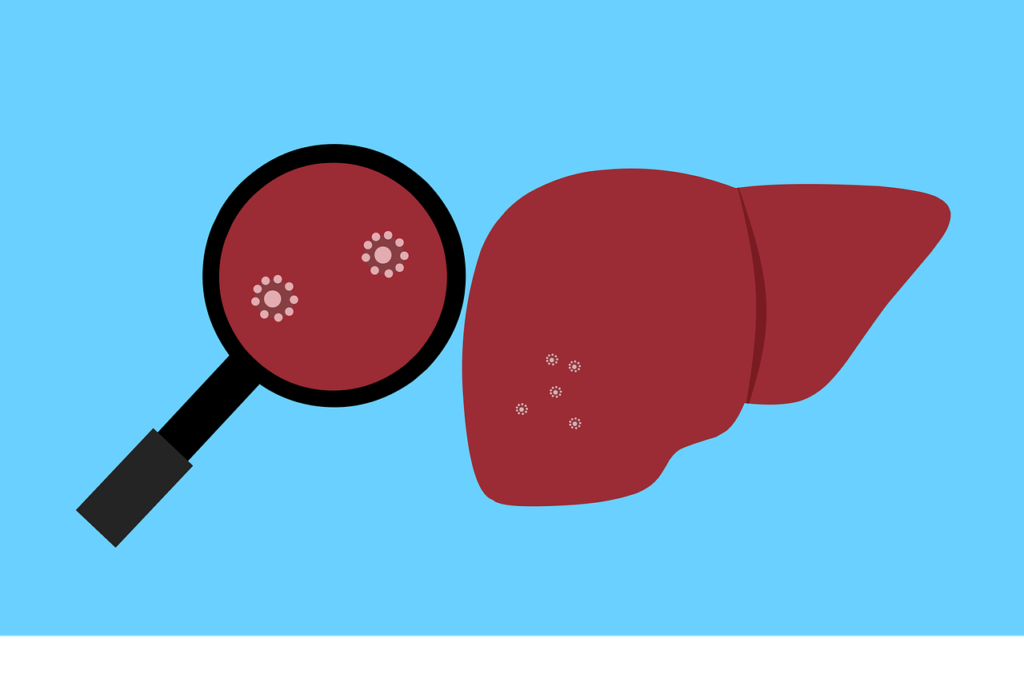What is Liver Cancer? Liver cancer, also known as hepatocellular carcinoma (HCC), is a type of cancer that begins in the cells of the liver. It is one of the most common types of cancer worldwide and often develops in individuals with underlying liver disease or cirrhosis.
Types of Liver Cancer:
- Hepatocellular Carcinoma (HCC): This is the most common type of liver cancer and originates in the main type of liver cell, called hepatocytes.
- Intrahepatic Cholangiocarcinoma: This type of liver cancer develops in the bile ducts within the liver.
- Hepatoblastoma: Hepatoblastoma is a rare type of liver cancer that primarily affects young children.
Symptoms of Liver Cancer:
- Abdominal Pain: Pain or discomfort in the upper right abdomen, near the liver.
- Jaundice: Yellowing of the skin and eyes due to impaired liver function.
- Unexplained Weight Loss: Sudden and unexplained weight loss without changes in diet or exercise.
- Loss of Appetite: A decrease in appetite and feelings of fullness even after consuming small amounts of food.
- Fatigue: Persistent tiredness and weakness, often accompanied by a lack of energy.
- Nausea and Vomiting: Persistent nausea, vomiting, or abdominal bloating.
- Enlarged Liver: A palpable lump or enlargement of the liver felt during a physical examination.
- Swelling in the Abdomen: Accumulation of fluid in the abdomen (ascites) leading to swelling and discomfort.
Causes and Risk Factors:
- Chronic Liver Disease: Long-term liver damage due to conditions such as hepatitis B or C, cirrhosis, or non-alcoholic fatty liver disease (NAFLD) increases the risk of liver cancer.
- Alcohol Consumption: Excessive alcohol consumption over a prolonged period can lead to liver cirrhosis and increase the risk of liver cancer.
- Hepatitis Infections: Chronic infection with hepatitis B or C viruses significantly increases the risk of developing liver cancer.
- Obesity: Obesity and metabolic syndrome are associated with an increased risk of developing liver cancer.
- Family History: A family history of liver cancer or certain genetic conditions may predispose individuals to develop the disease.
Diagnosis of Liver Cancer:
- Imaging Tests: Imaging studies such as ultrasound, CT scan, or MRI may be used to detect abnormalities in the liver.
- Blood Tests: Blood tests may reveal elevated levels of certain liver enzymes or tumor markers, such as alpha-fetoprotein (AFP).
- Biopsy: A tissue sample (biopsy) may be taken from the liver to confirm the presence of cancer cells and determine the type and stage of liver cancer.
- Liver Function Tests: These tests assess the liver’s ability to function and may indicate abnormalities associated with liver cancer.
Treatment of Liver Cancer:
- Surgery: Surgical removal of the tumor (resection) may be performed if the cancer is localized and the liver function is adequate.
- Liver Transplant: In some cases, a liver transplant may be recommended for individuals with early-stage liver cancer and cirrhosis.
- Ablation Therapy: Techniques such as radiofrequency ablation (RFA), microwave ablation (MWA), or cryoablation may be used to destroy cancerous cells in the liver.
- Chemotherapy: Chemotherapy drugs may be used to shrink tumors or slow down the progression of advanced liver cancer.
- Targeted Therapy: Targeted therapies such as sorafenib or lenvatinib may be prescribed to inhibit specific pathways involved in tumor growth and spread.
- Immunotherapy: Immunotherapy drugs may help stimulate the body’s immune system to recognize and attack cancer cells.
Conclusion: Liver cancer is a serious condition that requires early detection and prompt treatment. Individuals at risk, including those with chronic liver disease, hepatitis infections, or a family history of liver cancer, should undergo regular screening to detect liver cancer at an early stage when treatment options are most effective. With advances in medical technology and treatment modalities, the prognosis for liver cancer has improved, and many individuals can achieve long-term survival with appropriate treatment and follow-up care.




